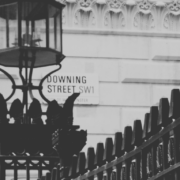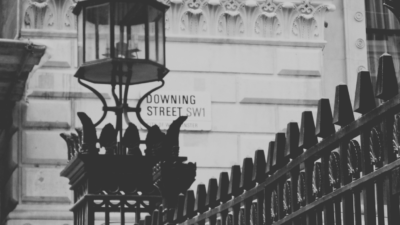- CPI inflation fell to 3.4% in January. Economists had forecast 3.5%.
- Food inflation has fallen for the 11th consecutive month.
- Prices were up 0.6% in a month (compared to 1.1% a year earlier).
- It’s the lowest inflation in almost two and a half years, and well down from the peak at 11.1% in October last year.
- Core CPI inflation (stripping out energy, food, alcohol and tobacco) was 4.5%, down from 5.1% in January.
- The CPI services rate also fell, to 6.1%.
- What next?
- What it means for savings.
- What it means for annuities.
- What it means for homeowners.
The ONS has released inflation figures for February: Consumer price inflation, UK – Office for National Statistics
Sarah Coles, head of personal finance, Hargreaves Lansdown:
“We’ve been released from the grip of inflation, and the squeeze has finally eased a little. After falling to 3.9% last November, inflation briefly tightened its grip on our finances again, so it’s a relief to see it ease in February. Unfortunately, this doesn’t mean life is getting any less expensive, it’s just getting more expensive at a slower pace, and while we expect to see inflation keep falling – it isn’t letting go of us just yet.
Part of the February flop is down to the fact inflation surged a year earlier, by 1.1% in a month – to 10.4%, which is what we’re comparing prices to today.
A year ago, food inflation was 18.3%, whereas now it has dropped for the 11th consecutive month to 5% – feeding lower inflation. As anyone who has been to the supermarket knows, this is very different from prices actually dropping. A handful of items are falling, including milk, cheese, butter, fish and jam. However, more generally, price rises have been baked into things like staff costs and manufacturing, so food and drink is just getting more expensive more slowly. More than nine in ten people have noticed their food bills rising in the past month, and two in five are buying less food to make ends meet.
Energy prices are also significantly less painful. Last February, the energy price guarantee was in place at £2,500 – well ahead of the cap today. Back then, electricity prices were up 66.7% in a year and gas up 129.4%. Right now, energy prices are down on the year, with electricity down 13% and gas down 26.5%, which has had a major impact on inflation. Along with transport costs, it’s the one major category of CPI which was negative over the year. However, energy bills are still significantly higher than they were before the pandemic. Still two in five people find it difficult to pay energy bills – and 3% are behind on payments.
It’s worth highlighting that the CPIH index differs from CPI quite significantly when it comes to housing costs, because it also includes rents – which has put upwards pressure on the other measure of inflation. CPI doesn’t look at housing costs, so this impact isn’t showing up in the data.
Petrol prices have risen slightly, in contrast to falls last year. So, although diesel prices are 10.8% lower than this time last year and petrol is down 3.9%, it’s putting some upwards pressure on inflation. This was partly offset by falls in second hand car inflation, for the seventh consecutive month, now the pandemic boom has run its course.
Hotel and restaurant price inflation eased a little, up 6% in a year. They have been off to the races, as staff costs, food prices and energy prices have conspired to make running these businesses increasingly expensive. Prices are still rising quickly – just a bit less so. There are some big variations within this category too, with hotel prices up 4.5% in a year and campsites, holiday centres and youth hostel prices up 17%.
What next?
The pressure it set to keep easing in the next few months, as inflation drops rapidly towards the Bank of England’s target in the second quarter of the year. The energy price cap cut is waiting in the wings for April, helping cut one cost that has been putting so many households under so much pressure for the past few years.
Unfortunately we’re not out of the inflation woods just yet, because after hitting the target, inflation is expected to take hold of us again, and it will take a while for that to ease. As a result, the Bank of England has already said it’s not going to cut interest rates in a hurry. It’s going to wait for lower inflation to bed in. It means there’s a decent chance we won’t see cuts until August.”
What it means for savings
Mark Hicks, head of Active Savings, Hargreaves Lansdown:
“Falling inflation is great news for savers, when you look at the return they’re getting on cash after inflation. With inflation at 3.4%, and savings and cash ISA rates as high as 5% on the best variable and short-term fixes, it’s now possible to beat inflation by a decent margin.
The fly in the ointment is that when the market starts to see inflation under control, it will price in lower interest rates and savings deals will drop. However, we are in a golden period between the two, so it’s worth getting hold of a competitive deal while you can. It’s still as important as ever to track down a better deal from a newer online bank, building society or savings platform.
The rates on one-year fixed term deposits have risen the most over the past four weeks, and these products are still offering the highest rates across the savings curve. Not only that, but they lock in the deals available before the market starts to reprice to take account of falling Bank of England rates. If you don’t need a chunk of your savings for a year or longer, it’s well worth considering a fixed rate deal right now.”
What it means for annuities
Helen Morrissey, head of retirement analysis, Hargreaves Lansdown:
“Today’s fall in inflation is welcome news for pensioner’s pockets, which have been under pressure for some time. However, for those in the market for an annuity, the fact that inflation is falling back might make the decision between an inflation-linked and level product that bit trickier.
Annuity rates are currently riding high and HL’s annuity search engine shows a 65-year-old with a £100,000 pension can get up to £7,430 from a level annuity. This compares to just £4,650 from an RPI-linked product. Of course, your income rises each year with the inflation linked product, but the gulf between the starting incomes will be off-putting for many.
It’s a tricky decision and several factors need to be weighed up. It can take many years for the income from an inflation linked annuity to catch up to that of a level product and with budgets squeezed, many people will opt for the higher starting income. However, even though inflation is starting to fall back, the eye wateringly high rates we’ve seen are recent enough to make many people look at how they can protect their income.”
What it means for homeowners
Sarah Coles:
“Falling inflation usually feeds into Bank of England rate cuts, and cheaper mortgages, but this is an unusual situation. Not only is the Bank of England likely to hold rates tomorrow, but in addition, the mortgage market is still busily unwinding expectations of earlier rate cuts which it factored in at the start of the year.
Moneyfacts figures show mortgage rates dropped rapidly through January, and then started to build back as inflation proved more stubborn than expected. The average 2-year fixed rate mortgage is still lower than it was at the start of January (5.8% compared to 5.93%), but it’s on its way up. These inflation figures could help pause the rises – especially if the Bank of England makes the right noises about rate cuts tomorrow.
Over the coming months, we will see mortgage rates ease. It’s even possible the market will get over-excited by the fall in inflation and cut faster. It’s just that for those who need to remortgage, or those who are hanging on in a variable rate deal, the wait is going to feel interminable. It’s no wonder that the HL Savings & Resilience Barometer shows that by the end of this year, one in four mortgage holders are expected to be at risk of falling into arrears.”





















Comments